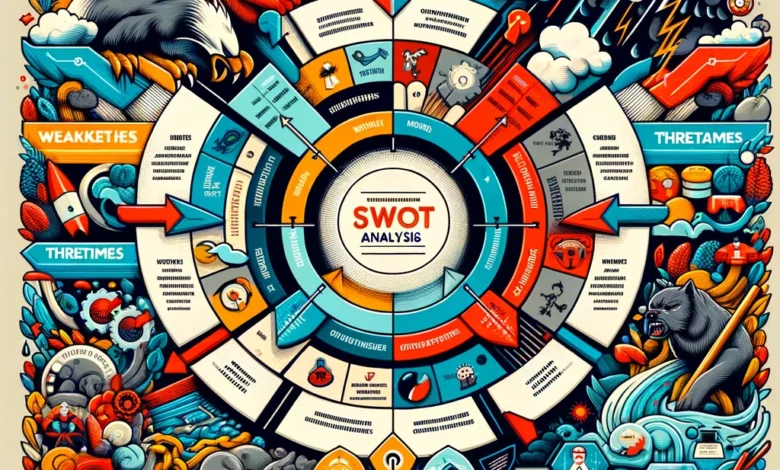Strategic Insights: AI Project SWOT Analysis Generator

In the rapidly evolving technological landscape, the advent and integration of artificial intelligence (AI) into various sectors have become a cornerstone for innovation and efficiency. Specifically, AI project management tools are redefining the paradigms of how projects are managed, monitored, and delivered across industries. This essay delves into the strategic insights gained through a SWOT (Strengths, Weaknesses, Opportunities, and Threats) analysis of AI-driven project management initiatives, highlighting the multifaceted benefits these tools bring to the table. By understanding these aspects, organizations can better navigate the complexities of project management in the digital age.
Strengths
The first quadrant of the SWOT analysis illuminates the inherent strengths of AI in project management. One of the most significant advantages is the automation of routine tasks. AI tools are adept at handling time-consuming activities such as scheduling, tracking progress, and resource allocation. This automation not only saves valuable time but also reduces human error, leading to more accurate and reliable project outcomes. Visit https://www.taskade.com/blog/ai-in-project-management/
Another strength lies in AI’s capability for data analysis and decision-making. These tools can process vast amounts of data at an unprecedented speed, providing project managers with insights that would be difficult, if not impossible, to derive manually. From predicting project timelines to optimizing resource allocation, AI-driven analytics empower managers to make informed decisions based on real-time data.
Moreover, AI enhances communication and collaboration within project teams. Advanced AI systems can facilitate smoother interactions among team members by providing platforms for instant communication, integrating with other digital tools to offer a unified workspace, and even predicting and mitigating potential communication barriers.
Weaknesses
Despite the strengths, it’s essential to acknowledge certain weaknesses. One notable limitation is the significant initial investment required for implementing AI tools. The costs associated with purchasing, customizing, and maintaining sophisticated AI systems can be prohibitive for small to medium-sized enterprises (SMEs).
Another weakness is the steep learning curve associated with these advanced technologies. Teams may require considerable time and training to fully harness the capabilities of AI project management tools. This can temporarily hinder productivity and delay the realization of the benefits these tools promise.
Additionally, AI systems, while advanced, are not infallible. They can sometimes generate errors, especially in complex or novel situations that the AI has not been trained to handle. This necessitates a level of oversight and intervention by human managers to ensure that the project remains on track.
Opportunities
The opportunities presented by AI in project management are vast and varied. One of the most exciting prospects is the potential for predictive analytics. By leveraging AI’s ability to analyze trends and patterns, organizations can forecast project outcomes with a high degree of accuracy, allowing for preemptive adjustments to strategy and execution.
Another opportunity lies in the realm of personalized project management. AI systems can learn from previous projects and tailor their operations to better suit the specific needs and preferences of a project team or manager, leading to more efficient and effective project management practices.
Furthermore, AI’s integration into project management opens avenues for innovation in various sectors. By automating routine tasks and providing sophisticated data analysis, AI allows teams to focus more on creative and strategic aspects of projects, driving innovation and competitive advantage.
Threats
However, the integration of AI into project management is not without its threats. One of the primary concerns is the potential for job displacement. As AI systems become more capable of performing tasks traditionally done by humans, there is a risk of reducing the need for human employees in certain roles.
Another threat is the issue of data security and privacy. AI systems require access to vast amounts of data to function effectively, raising concerns about the security of sensitive information and the potential for data breaches.
Lastly, there’s the challenge of keeping pace with rapid technological advancements. Organizations that fail to continuously update and refine their AI tools risk falling behind competitors who leverage the latest technologies to enhance their project management capabilities.
In conclusion, the SWOT analysis of AI in project management reveals a landscape filled with potential for significant improvements in efficiency, decision-making, and innovation. While there are challenges and risks associated with the adoption of these tools, the strategic insights gained from this analysis underscore the transformative power of AI in reshaping project management. As organizations navigate the complexities of the digital age, those that can effectively integrate and leverage AI project management tools will likely find themselves at a competitive advantage, poised to lead in their respective industries.


